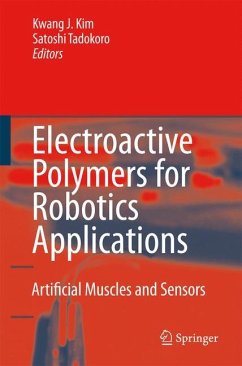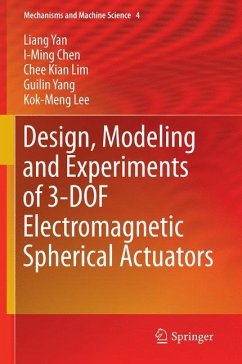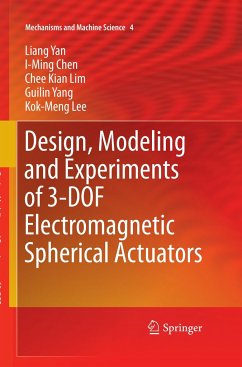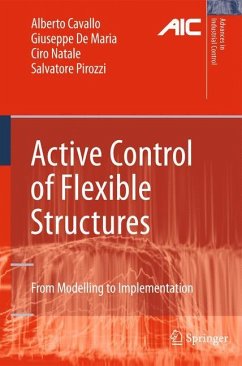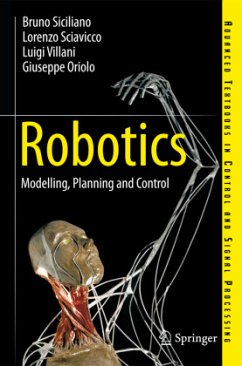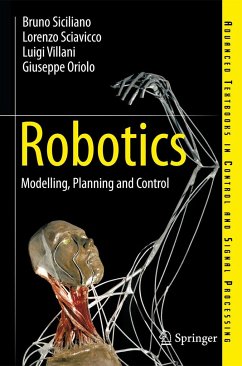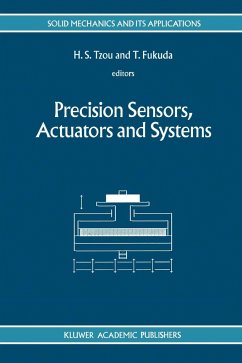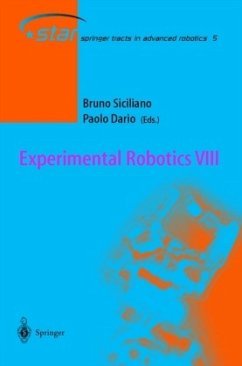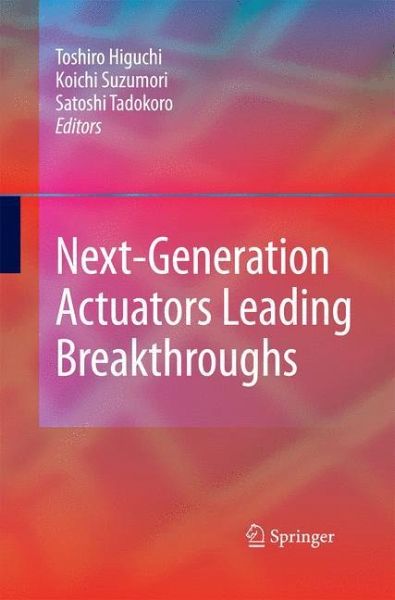
Next-Generation Actuators Leading Breakthroughs

PAYBACK Punkte
57 °P sammeln!
Next-Generation Actuators Leading Breakthroughs is the proceedings of the final symposium of MEXT Grant-in-Aid for Scientific Research on Priority Areas: Next-Generation Actuators Leading Breakthroughs, held in January 2010.Since the realization of next-generation actuators requires an interdisciplinary approach, the research has been organized according to a broad technological perspective that consists of: actuators for small motion of nano-meters, small-size actuators of micro-meters structures, intelligent actuators for functional motions, power actuators for large force/torque and actuato...
Next-Generation Actuators Leading Breakthroughs is the proceedings of the final symposium of MEXT Grant-in-Aid for Scientific Research on Priority Areas: Next-Generation Actuators Leading Breakthroughs, held in January 2010.
Since the realization of next-generation actuators requires an interdisciplinary approach, the research has been organized according to a broad technological perspective that consists of: actuators for small motion of nano-meters, small-size actuators of micro-meters structures, intelligent actuators for functional motions, power actuators for large force/torque and actuators for special environments.
Next-Generation Actuators Leading Breakthroughs also deals with common fundamental technologies for these actuators, such as intelligent materials, machining processes, control technologies, evaluation methods, and system integration. It provides cutting-edge research for researchers, postgraduates, and practitioners in mechanical, electrical, and materials industries.
Since the realization of next-generation actuators requires an interdisciplinary approach, the research has been organized according to a broad technological perspective that consists of: actuators for small motion of nano-meters, small-size actuators of micro-meters structures, intelligent actuators for functional motions, power actuators for large force/torque and actuators for special environments.
Next-Generation Actuators Leading Breakthroughs also deals with common fundamental technologies for these actuators, such as intelligent materials, machining processes, control technologies, evaluation methods, and system integration. It provides cutting-edge research for researchers, postgraduates, and practitioners in mechanical, electrical, and materials industries.





